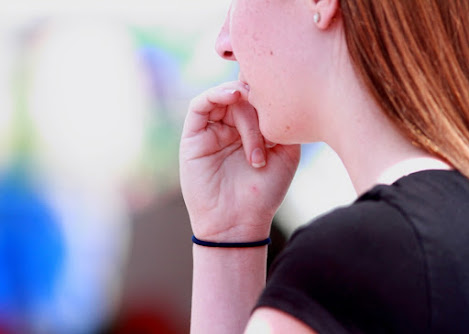The Trap of External Validation for Self-Esteem
In my personal and professional life, I have met and observed many people who are desperately trying to get approval and acceptance from others, never feeling enough, and being terrified of many forms of social rejection.
For many, hurt and invalidation starts very early and routinely continues throughout their life in one form or another. As a result, so many people learn that a sense of self-esteem and self-worth fundamentally comes not from within but from others, therefore they constantly seek other’s people’s approval or attention.
The Mechanism Behind It
When you are a small child whose whole existence and well-being depends on others, it is vital not to feel rejected because for a child rejection equals existential death. And since as children we are constantly hurt and rejected in many overt and highly subtle ways, a lot of us grow up into wounded and self-less adults whose self-perception is skewed or blurry, to the degree to which we haven’t resolved it.
If we never explore or even recognize this phenomenon, we are doomed to be dependent on other people’s opinions, judgments, and perceptions of us—which makes us prone to being manipulated, and potentially being manipulative ourselves.
For many, it means the following: if someone thinks what you prefer them to think about you, then everything’s great; and if someone thinks something bad about you, then things are really bad. In other words, you are defined by others—and if they perceive you as flawed (accurately or inaccurately), then you feel horrified.
Here, such a person has two problems.
One, they constantly need other people’s approval and validation to feel that they are a good person, to feel pleasant emotions, or even to feel alive. And two, they feel shame or guilt or anger or loneliness or anxiety or confusion or other painful emotions when someone disapproves of and invalidates them, which then leads to often dysfunctional behavior to manage all of it.
To give a few simplified examples, if someone likes your post on Facebook, then everything’s well and good. But if they don’t, then you feel terribly anxious or empty or invisible. If someone agrees with you, then you must be right and you feel confidence and joy. But if they don’t, then you feel threatened, lonely, upset, self-doubtful, socially anxious, and so on.
So you might spend your whole life—and many do—chasing after acceptance and validation, and feeling terrified of rejection.
As a coping mechanism from the painful feelings related to it, some are people-pleasers who are afraid to be their true selves or take care of themselves. A lot of them don’t even know who they really are, what they actually feel, what they truly think, or what they like. Their mental boundaries are closely enmeshed with others because they were raised to take care of others and neglect themselves.
Others mainly have developed different tendencies that fall on the other side of the spectrum, where they disregard others, their boundaries and their humanity, and only care about themselves. This often is what people refer to when they use the terms narcissism or antisocial behavior.
Whether it’s people-pleasing or narcissistic, antisocial behavior or something in between, the underlying and often ignored question is why? Why would a person harm themselves or hurt others? Yes, they may want to be “nice” or want power—but why? Because deep down they are hurt and feel empty, or insecure, or anxious, or lonely, or ashamed, or guilty. Both those sets of behaviors can be referred to low self-esteem. (Although way too often narcissism is falsely perceived as high self-esteem when actually it’s the opposite.)
That deep, early fear of rejection and abandonment can haunt us forever. That urge for validation and acceptance and that terror of rejection can be omnipresent. In many cases that’s the root cause of people’s problematic and unwanted behavior: people simply are trying to regulate their emotions by using the methods they learned when they had to adapt to their stressful past environments.
But it doesn’t have to be this way forever.
What’s On the Other Side
When we start healing, growing, and thriving, we learn to evaluate ourselves and do it more and more accurately. We understand that you can learn to accurately estimate yourself instead of only relying on other people’s interpretation of you, which, for better or worse, is often grossly inaccurate. Our sense of self-esteem actually starts coming from the inside, not from the outside.
We don’t rely on others to validate our existence or define us. We feel increasingly more connected with ourselves. We are stronger now so we can accept certain things about ourselves that previously our psyche didn’t allow us to access. As a result, we realize that we are grown individuals now, not dependent, powerless children anymore. So we are less and less frightened by rejection or mentally depend on others.
We can recognize and accept our strengths and shortcomings. We can learn self-validation. We can step out of our comfort zone. We can change our behavior. We can change our belief systems. We can slowly let go of old survival mechanisms, because they don’t aid us anymore. We can start making better choices. We can live a more conscious, more proactive, more loving, and more fulfilling life.
Support my work by becoming a Patreon subscriber for $5/mo or more and get access to bonus articles. And check out my book Human Development and Trauma: How Childhood Shapes Us into Who We Are as Adults. Thanks!




Comments
Post a Comment